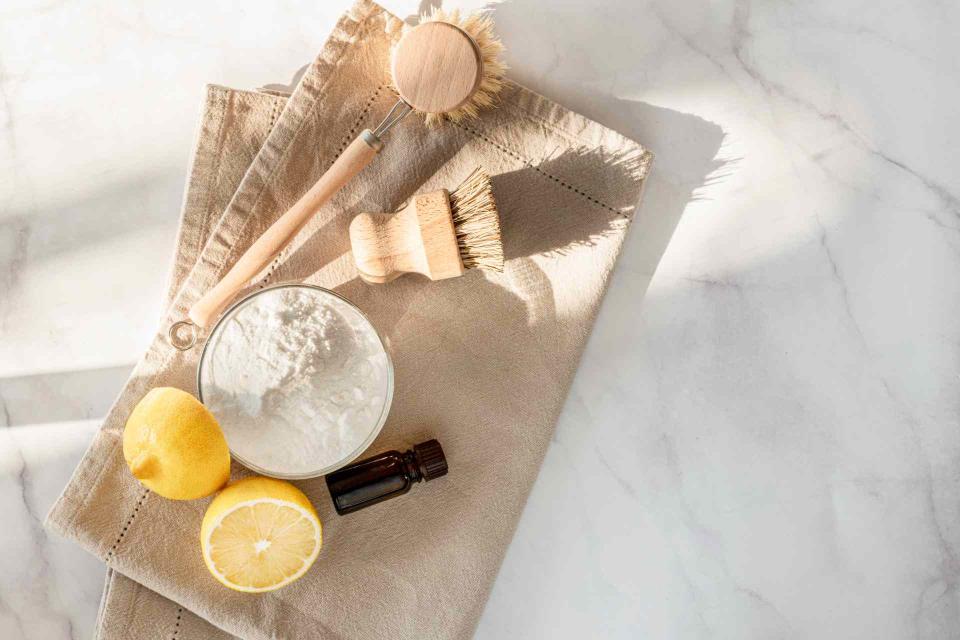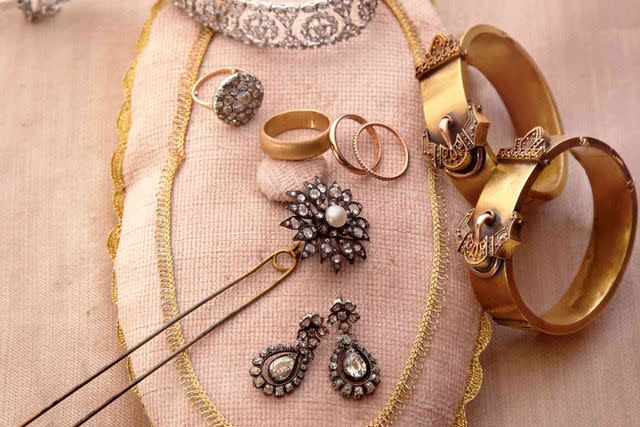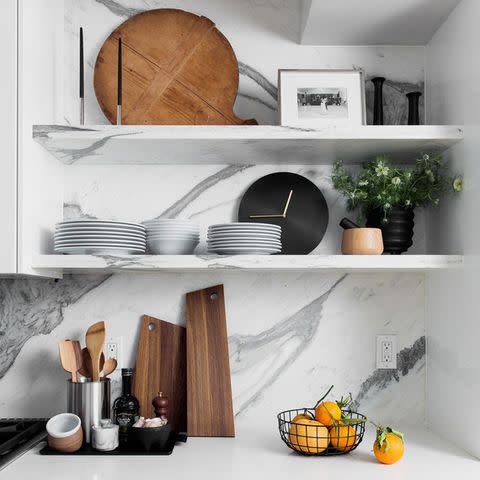Baking Soda Can Be Used to Clean Most Anything—Except for These 11 Items
Baking soda is a natural, effective cleaner—but it's not the right choice for everything.

Yuliya Apanasenko / Getty
Some of our favorite pantry staples play double duty as natural cleaning agents. If you have items like vinegar and baking soda, you can clean just about anything in your home as well as if you were using a commercial cleaner. But just because you can use baking soda around your home doesn't mean that everything should be cleaned with it.
Why Baking Soda Is Used to Clean Around the Home
"Baking soda is commonly used as a cleaning agent because its mildly abrasive nature makes it effective for scrubbing and stain removal on most surfaces," says Marla Mock, president of Molly Maid, a Neighborly company. "It can be used for various cleaning tasks and is an economical and environmentally friendly cleaning option."
Baking soda is commonly combined with another solution, such as vinegar or water, to create a cleaning paste. (But be careful not to combine baking soda with certain solutions such as chlorine bleach, ammonia, or alcohol because these can cause dangerous chemical reactions.)
Why You Shouldn't Use Baking Soda to Clean Certain Items
For as effective a cleaner as baking soda is, there are certain instances when you'll want to choose something else. "Some drawbacks of using baking soda include that its mildly abrasive nature can potentially harm delicate surfaces and if not thoroughly rinsed, it may leave behind a powdery residue," says Mock.
Baking soda is also not adept at cleaning some stains, either. "While baking soda can help to remove some stains, it may not be effective against all types of stains," says Alicia Sokolowski, president and co-CEO of Aspen Clean. "Ink or certain dyes may require specialized stain removers."
With that in mind, we asked Mock and Sokolowski what items you shouldn't clean with baking soda around your home.
Meet Our Expert
Alicia Sokolowski, president and co-CEO of AspenClean
Marla Mock, president of Molly Maid, a Neighborly company
Related: 20 Ways to Use Baking Soda to Clean and Freshen Your Home
Electronic Devices
Baking soda is abrasive and gritty—two things you don't want near any delicate electronic devices. "Avoid using baking soda on electronic devices such as smartphones, tablets, and computers," says Sokolowski. "The abrasive texture of baking soda can scratch screens and damage delicate electronic components."

Thayer Allyson Gowdy
Some Jewelry
The last thing you want to do is damage any delicate jewelry, which can happen if you use baking soda to clean your necklaces or rings. "Baking soda can be too abrasive for delicate jewelry, especially items made of gold or silver," Sokolowski says. "It may cause scratches or remove protective finishes." Stick to using cleaners specifically made for your type of jewelry to avoid any harm to gold and silver.
Related: How to Clean Your Jewelry the Right Way
Aluminum Cookware
Generally, cleaning your cookware with baking soda is ok, but you'll want to steer clear of cleaning any aluminum pots and pans with it. "Baking soda can react with the aluminum surface of the cookware, potentially causing discoloration," says Sokolowski.
Waxed Furniture and Antiques
Waxed furniture and priceless antiques can potentially be scratched with baking soda. There are specific cleaning solutions that one can use for waxed furniture, and cleaning antiques may be best left to professionals.
Stone Countertops
Natural stone countertops tend to be a bit more porous than other types of kitchen surfaces. You'll want to avoid baking soda when scrubbing your stone countertops because of the potential for it to leave scratches. "Some stone countertops, especially those with polished finishes, may be susceptible to scratching from baking soda," says Sokolowski. "Check with the manufacturer to avoid damaging the surface."
Related: How to Clean Every Type of Kitchen Countertop
Cast Iron
Taking care of cast iron is easy if you know how to do it. Cast iron products like pans and pots should be seasoned effectively to make the surface nonstick. If you use baking soda to clean cast iron, you're likely to strip away the seasoning. "Instead, opt for gentler cleaning methods, such as salt and lemon," Sokolowski says. However, if you need to remove stubborn rust, baking soda will help do the job—just know that you will have to re-season the pan after cleaning.

Marble Surfaces
Besides potentially scratching marble, baking soda has certain chemical properties that can react with marble, says Sokolowski. To clean marble, a solution of water and pH-neutral dish soap is your best bet.
Related: How to Clean Marble Surfaces the Right Way
Clogged Drains with Aluminum Pipes
Always proceed with caution when using baking soda to unclog aluminum pipes. "If we often recommend baking soda to unclog drains, you have to use it with caution," says Sokolowski. "It is typically more suitable to use with vinegar when draining non-aluminum components."
Wood Floors
Keep your wood floors looking beautiful by only using specific cleaners designed for wood flooring. Baking soda can scratch the finish on your floors.
Related: How to Clean Hardwood Floors the Right Way

Dana Damewood Photography
Glass Surfaces
Baking soda is "not suitable for cleaning glass surfaces like mirrors or windows," says Mock, because you're likely to scratch those surfaces.
Smooth Stovetops
While baking soda can be used on some stovetops, if you have an electric stove with a glass or ceramic top, stick to using other degreasing agents to thoroughly clean it. Baking soda can leave a residue and scratch the surface.
Related: How to Clean a Glass Stovetop (Without Scratching It)
Read the original article on Martha Stewart.

